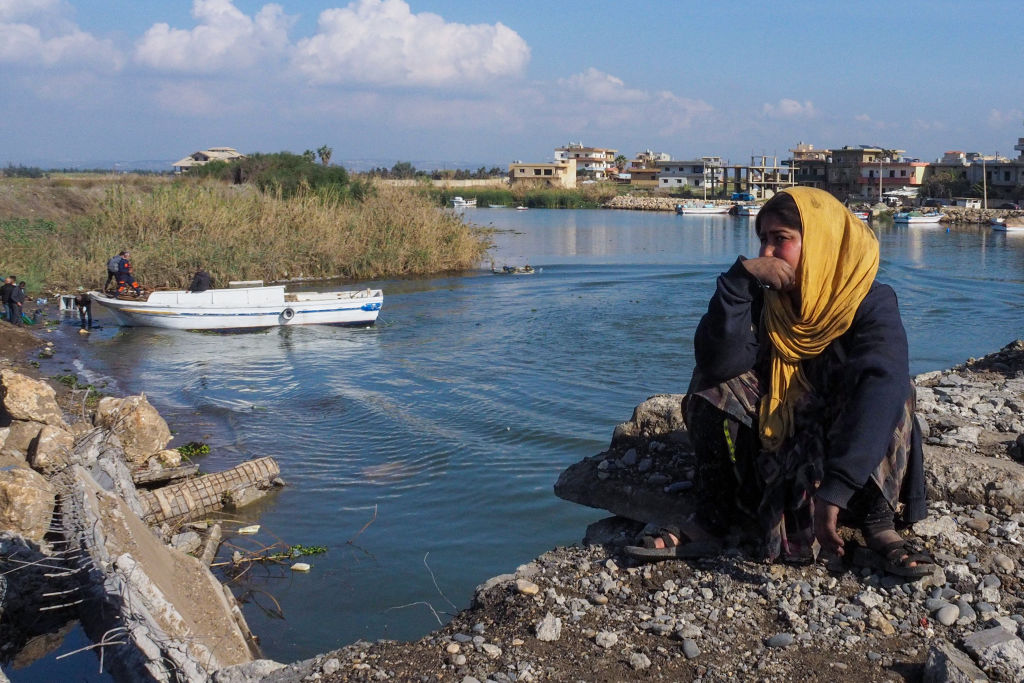The last thing Labour needed, after a difficult few months, was an international development that thrust the spotlight onto the UK’s refugee system. But in the long-postponed collapse of the Ba’athist dictatorship in Syria, that’s exactly what Keir Starmer has received.
Foreign Secretary David Lammy has suspended asylum claims from the country, as have several other Western nations, citing concerns that the collapse of Bashar al-Assad’s government could spark a fresh wave of migration into Europe.
That is a real danger — at least until it becomes clear what the new government in Damascus looks like. While the Assad regime has consistently brutalised the Syrian people, there are some groups — most obviously the Alawites, who enjoyed a privileged position in Ba’athist Syria — who could be persecuted.
Whether or not Labour can sustain such a pause is another question. If the new Syria does end up sending fresh waves of refugees to Europe, the current immigration regime has no mechanism for refusing those it deems to have legitimate claims.
But another, even thornier question is what to do with the almost 30,000 Syrian refugees who are already here. Since the civil war broke out in 2011, the UK has accepted the vast majority of claims from people fleeing the country. More than 27,000 have arrived in Britain during the period, and last year a full 99% of all claims filed from Syria were accepted; as of the autumn there were just over 6,500 outstanding claims awaiting processing.
Under the official logic of the asylum system, the vast bulk of those claims will now be, as Shadow Justice Secretary Robert Jenrick has put it, “baseless”. They were fleeing persecution by the Ba’athist regime, and that regime has fallen. Work ought to, therefore, begin on building a pathway for their return to Syria. But will it? One can already imagine the objections, not least of which is that Syria may well remain a dangerous and unstable country even after Assad’s government is formally replaced.
Yet while that may be true, it dramatically lowers the threshold for claiming asylum. The original inspiration of the system underpinned by the Refugee Convention was the Nazis’ persecution of the Jews — i.e. the systemic and organised targeting of a particular people.
It was not merely that their country of origin was unstable, or poor. If the de facto test becomes whether or not someone would enjoy a higher quality of life in their home country or the West, the system effectively becomes what sceptics have always feared: a backdoor immigration pathway.
More compelling, although not necessarily less complicated, will be the situations of people who have built lives here. A refugee who arrived in 2012 has been in Britain for over a decade: many will have made friends and settled down. It would be understandable, on a human level, if leaving all that to go and “rebuild Syria” weren’t top of their Christmas list.
But, again, the difficult question of what the asylum system is for raises its ugly head. Refugees are granted access to this country — and to an awful lot of welfare support too — on certain conditions. They are allowed therefore to bypass the normal immigration system, with its (bare-minimum) requirements to support yourself financially and strict limits on recourse to public funds.
That is much easier to justify when it is a completely different, conditional, and ideally temporary arrangement. Indeed, creating a hard line between refugees and normal immigration would almost certainly help to maintain broad public support for taking in asylum seekers: only a very small share of the public is completely opposed to the UK admitting genuine asylum seekers, as the widespread support for the Ukrainian scheme showed.
The calculation has to change, however, if someone who comes in as a refugee can in fact simply bypass the normal immigration standards and settle here forever at public expense. But will Labour see that? If not, ministers should consider the example of Brexit: when politicians double down on an unreformed status quo, they just increase the risk of that settlement collapsing altogether.











Join the discussion
Join like minded readers that support our journalism by becoming a paid subscriber
To join the discussion in the comments, become a paid subscriber.
Join like minded readers that support our journalism, read unlimited articles and enjoy other subscriber-only benefits.
Subscribe